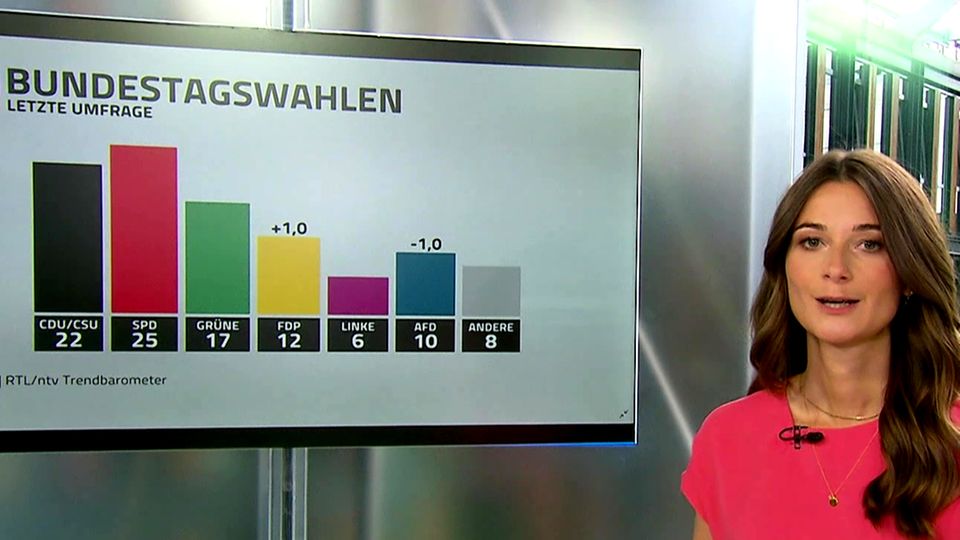For members of the Bundestag, stricter rules for additional income will soon apply – this was decided by the Federal Council at its last meeting before the election. Changes will also affect the population.
In its last session before the federal election on Friday, the Federal Council cleared the way for several new laws. A consequence was drawn from the so-called mask affair – after several members of the Bundestag had unlawfully enriched themselves in mask deals at the beginning of the pandemic, they should in future have to indicate at a lower threshold which additional income they receive.
The Federal Council voted on this
An initiative with which several countries wanted to abolish the controversial advertising ban on abortion did not find a majority. An overview of the most important points:
Stricter transparency rules: In the future, MPs will have to report additional income to the President of the Bundestag starting at EUR 1,000 a month or EUR 3,000 a year. If you hold shares in corporations or partnerships, you must now display these from five percent. The law also provides for higher penalties for bribery. In future, this will be punished with a prison sentence of at least one year and up to ten years.
Renewable energy: Mineral oil companies must use more renewable energies in the future in order to reduce CO2 emissions in transport in the fight against global warming. The resolution stipulates that Germany should increase its share of renewable energies in transport from the current 10 percent to around 32 percent by 2030. This should succeed by increasing the so-called greenhouse gas reduction quota for fuels.
Criminal offenses: In the case of the most serious crimes such as murder, trials can be reopened in the future despite an earlier acquittal. The prerequisite for this is that a conviction of the person concerned is very likely. New incriminating information can arise, for example, through new examination methods. In the future, the importance of digital forensics, i.e. the police evaluation of digital data carriers or storage media on the Internet, could grow.
Accompanying people with disabilities: In the future, people with disabilities will be able to be accompanied more easily by relatives and other people they trust when they are hospitalized. Accompanying persons can soon be reimbursed for their loss of earnings under certain conditions.
Electric car charging stations: In the future, drivers of electric cars must be able to pay at charging stations with a debit or credit card. From July 2023, card readers must be installed in new charging stations. Older models do not have to be converted. The automotive industry wants to increasingly rely on payment via app and other digital models. Banks, cities and municipalities, on the other hand, criticized that this excludes many users.
Food: Because a lot of food is still thrown away, the federal government should examine easing of liability for food donations. Consideration should also be given to tax incentives for the sale of edible products with a short expiry date. The declared goal of the federal government is to cut food waste in half by 2030.
Communication with courts: Secure electronic communication with judicial authorities should become easier. Citizens, companies or organizations will in future be able to exchange documents with courts via an electronic mailbox.
Chimneys: So that the air in the immediate vicinity is less polluted, certain chimneys will have to be built higher in the future. Less harmful substances from pellet heating systems, tiled stoves and chimneys should be released directly into the ambient air. In future, the opening of newly built chimneys must be attached to the roof ridge, the highest point of the house.
Country initiatives that have been rejected: There were protests in front of the Federal Council against the law that criminalized the publication of certain information about abortions. Most of the state governments still want to adhere to the law – a reform initiative from Berlin, among others, failed. Most recently, Paragraph 219a had already been reformed in such a way that doctors can now make it public that they are performing abortions. However, further information about methods, for example, is not permitted.

A reform for lesbian couples also failed. Currently, the wife of the biological mother of a common child is not also considered a mother; she has to adopt the child later. Several countries wanted to change that because they see it as unequal treatment. Because in heterosexual marriages, the husband is directly considered the father if he is not the biological father of the child.
David William is a talented author who has made a name for himself in the world of writing. He is a professional author who writes on a wide range of topics, from general interest to opinion news. David is currently working as a writer at 24 hours worlds where he brings his unique perspective and in-depth research to his articles, making them both informative and engaging.




